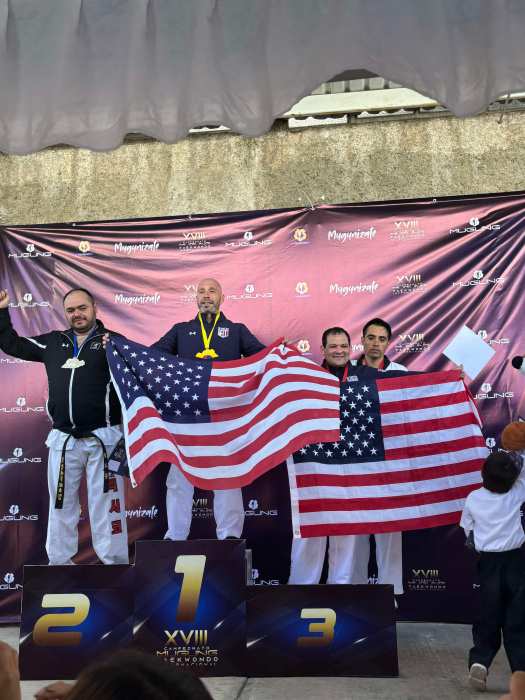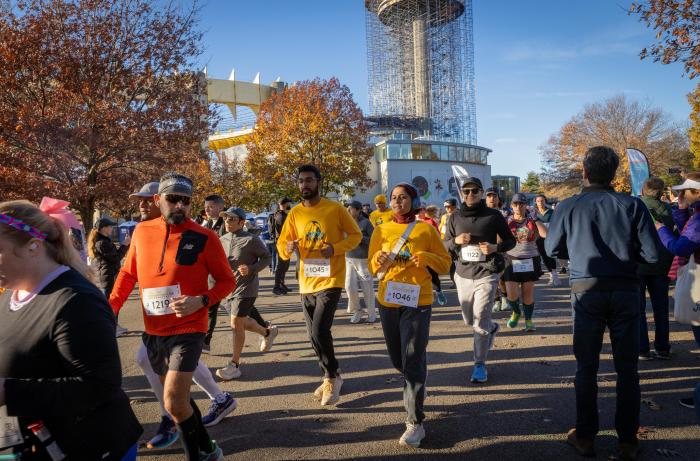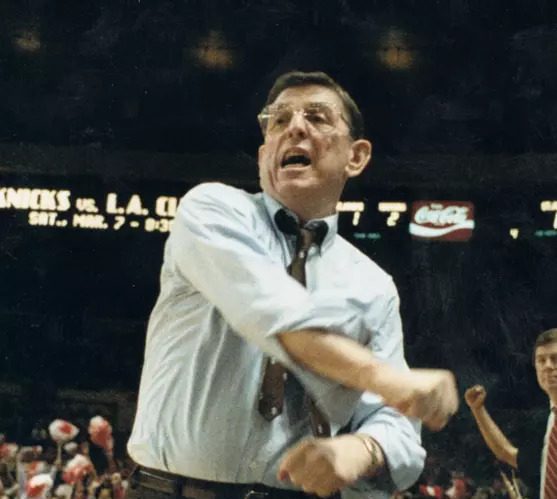Over the coming weeks, the world will watch as athletes in 28 sports from aquatics to wrestling compete at the Beijing 2008 Olympic Games.
Despite its wild popularity in China where it is known as wushu, kung fu will not be included on the roster of sanctioned Olympic sports. Instead, wushu will be featured alongside the Games in an exhibition called the 2008 Beijing Olympic Games Wushu Competition.
The move by the International Olympic Committee to allow the exhibition might have been a conciliatory one on behalf of the international kung fu community or it could amount to early evidence that the sport will make its official debut in London in 2012. Nevertheless, the fact that Olympic gold, bronze and silver will not grace the podiums at Beijing’s wushu competition does not appear to concern a group of local practitioners who take their kung fu seriously.
The Shaolin Temple Overseas Headquarters sits toward the end of a nondescript block in Flushing, but the building itself is conspicuous, even in a neighborhood saturated with Asian culture. Protruding from a simple brick wall on 41st Avenue, the temple’s roof points upward on either end like a gondola. Red lanterns, framed by shiny columns of the same color, dangle above the main entrance, coerced into motion by an occasional breeze. On a side of the building, a sign advertising the temple features two men engaged in combat, their generous thighs extending beyond delicate-looking robes.
The official auxiliary branch of China’s 1,500-year-old Shaolin Temple, the birthplace of kung fu and Chan Buddhism, the Overseas Headquarters, founded in 1995, is a crossroads for exercising body and spirit. But it is also a gateway between the East and the West, two areas at odds for reasons beyond longitudinal discrepancies.
The abbot of the temple, a 34th generation Shaolin Fighting Monk named Shi Guolin, and the wushu instructors, or shifus, all hail from China, whereas the majority of students come from all points west of Long Island. The classes may as well be lessons in diversity training; among the students is a young Indian double majoring in biology and anthropology at Queens College, a half black-half Jewish law school graduate from Westchester and a Taiwanese IT officer for a Manhattan bank.
Around 300 students pay a membership fee - $450 gets them three months of training six days a week if they wish, with tuition reduced when more months are purchased in advance - in order to study under experts like Shi Heng Zhen, the temple’s young head performance coach. Shi would be frightening to watch if he wasn’t so graceful — jumping, spinning and diving through the air with the ease and daring of an animal that knows neither the laws of gravity nor the consequences of attempting to defy them.
Shi, a monk, and his fellow instructors, all secular disciples - the culture of the Shaolin Temple transcends religion, the Venerable Shi Guolin says - admit the level of kung fu in America is quantum leaps behind that in China.
“Because Shaolin kung fu is really, really famous, it’s known everywhere in China,” 18-year-old Heng Cheng said through an interpreter. “So it’s like baseball in America.”
Chinese youth are drawn to kung fu at a young age, enamored with the prospect of fighting, Heng added. However, Shaolin kung fu, widely believed to be the purest brand of wushu, places a premium on vitality and spirituality. The Shaolin Temple declined an invitation to participate at the kung fu showcase in Beijing because the emphasis on their craft is Buddhism, not competition or fighting. This stance is mirrored in the shifus at the Overseas Headquarters who say they are pleased about the exposure the Olympic Games will offer kung fu, but seem confused when asked if they are offended that no medals will be awarded.
“In the practice of martial arts and the practice of kung fu, the heart or the consciousness should be quiet and stable and serene,” Shi explained through an interpreter.” The Venerable Shi Guolin emphasized the pairing of mind and body with regard to wushu and Chan Buddhism, noting the two “are the same thing with a different name.”
Thus, while shifus like Shi and Heng may initially look dangerous - equal parts strength, focus and athleticism with a dose of don’t-let-me-catch-you-in-a-dark-alley - their tough-as-nails exteriors are ultimately betrayed by warm smiles and a desire to pass their culture onto passionate students.
Twenty-one-year-old Ronveer Chakraborty is so eager to learn that he pushed it a little too hard in practice a while back and was sidelined for four months. The Queens College student, perhaps wising up to the consciousness that wushu promotes, decided to listen to his body to prevent future injury and took it upon himself to learn Mandarin to facilitate communication with his instructors.
Unlike his teachers, however, Chakraborty seemed a bit frazzled that kung fu - a sport he fell in love with through watching Power Rangers and Bruce Lee as a kid - would be sidelined at the Olympics.
“I definitely do see it as being an Olympic sport…Handball’s a sport [in the Olympics], you know,” he said laughing, quickly adding that he plays handball himself.
Raya Moore, who recently took the New York Bar exam, commutes to the Overseas Headquarters from a midtown Manhattan law firm a few days a week. She heralded the temple’s “young wushu masters at the absolute prime of their athletic prowess who are available to teach people of all different backgrounds.”
“It gives me the opportunity to do things I never, ever, ever, ever thought that I would do,” she said.
Wong Lee, like many of his fellow students, initially arrived at the Overseas Headquarters in search of a workout regimen free of dumbbells and a treadmill.
Three years later, Lee says, his healthy body is a testament to the fitness benefits of practicing rhythmic wushu forms and he has become a Shaolin kung fu convert. He has even adopted his instructors’ standpoint on wushu in the Beijing 2008 Olympic Games.
“It doesn’t really make a lot of difference to me whether it’s official or not,” Lee said, students somersaulting in the gym behind him.
“Whether a European won the gold medal or a Chinese won the gold medal, how does that impact my day-to-day training? I’m really just concerned about ‘Oh, do I have time in my schedule to fit the practice of my forms?’”



































